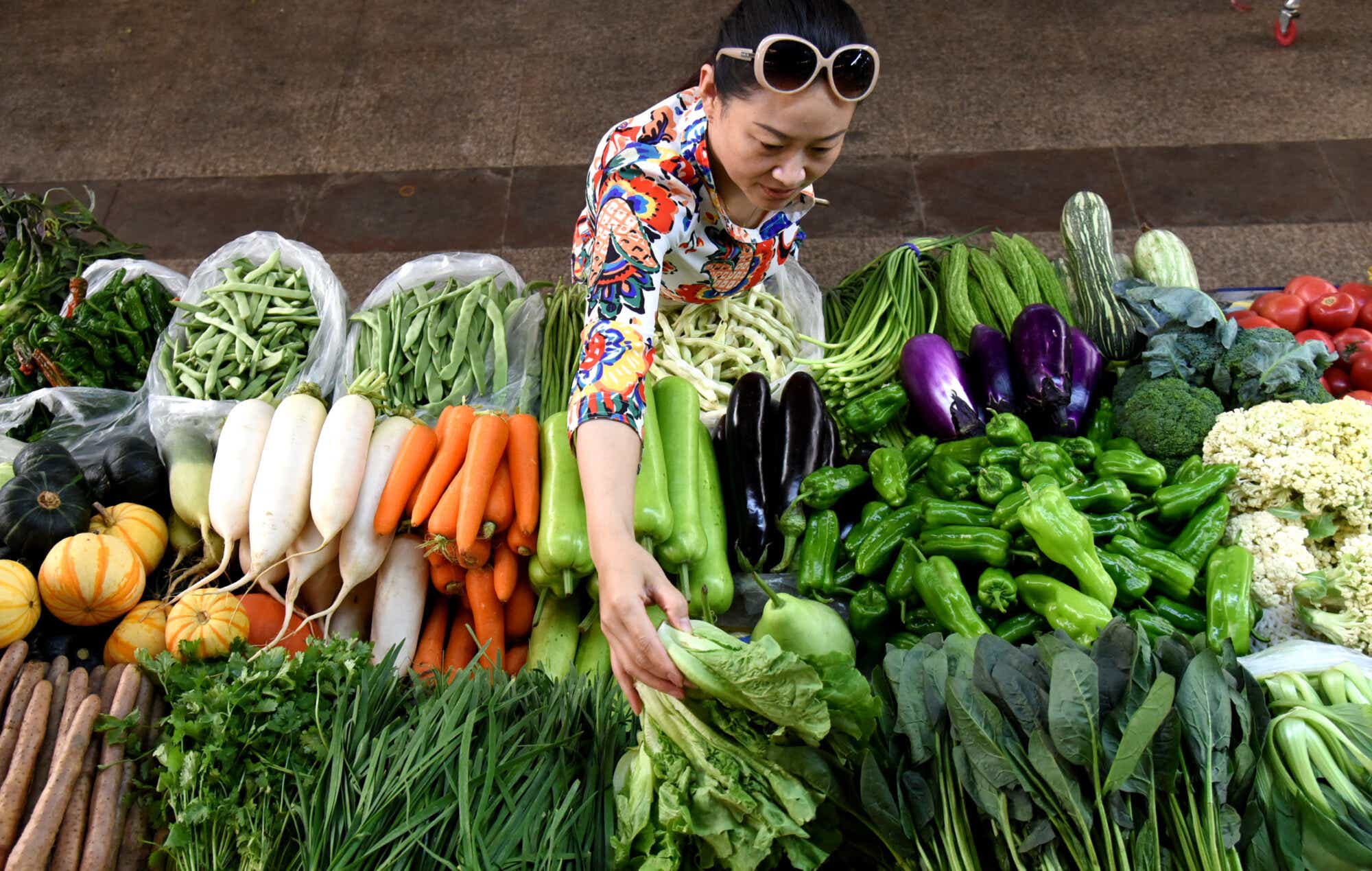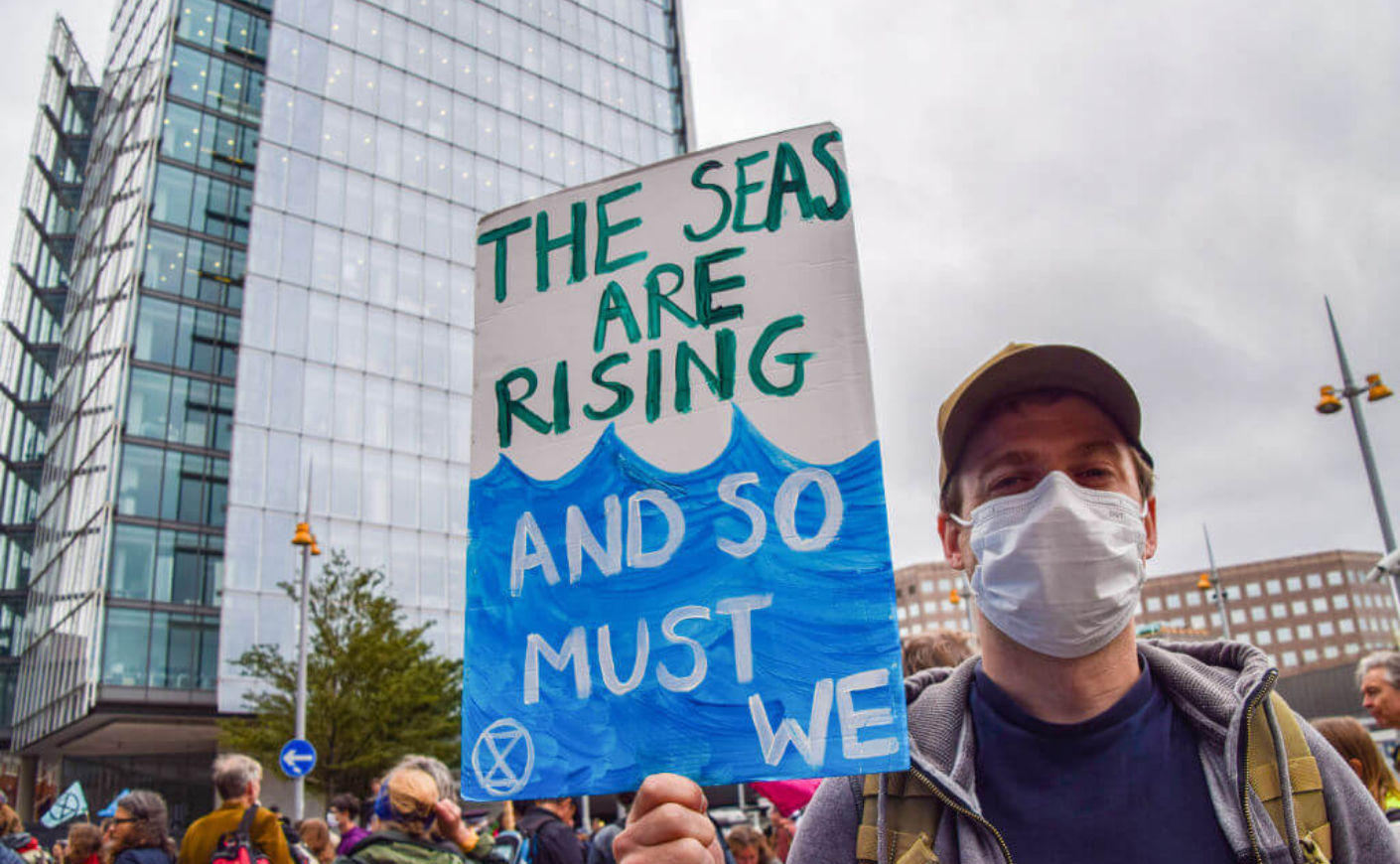We’ve all been inundated with dire headlines lately, and August’s IPCC Climate Report was no exception. According to the report, Earth has warmed 1.96 F since pre-industrial times as an “unequivocal” result of human activity, and shifts such as rising sea levels and melting glaciers are virtually irreversible. In the words of the secretary-general of the United Nations, this is a “code red for humanity.”
Terrifying? Obviously. But all isn’t lost. Scientists are hopeful that if we cut global emissions in half by 2030 and reach net zero by the middle of this century, we can halt and maybe reverse the rise in temperatures. But how can we get started?
First, one food-related climate myth:
It’s not news to anyone that hopping a jet across the Atlantic twice a month isn’t great for the environment. But other personal choices aren’t as clear-cut as they first appear.
When it comes to food shopping, the solution is buying local, right?
The food industry is a big culprit climate change-wise, with the meat and dairy industries alone accounting for around 14.5% of global greenhouse gas emissions. So should you go vegan, shop local, and switch to plant-based alternatives? It’s not quite that simple.
An under-acknowledged issue around individual action is that it’s hugely dependent on privilege. Sure, eschewing mass-produced fast food and popping into a farmer’s market for some locally grown arugula sounds ideal, but it also assumes that people have the time and money to do so. Plus, that “homegrown” market produce might not be as local as some North American vendors would have you believe.
In 2017, CBC revealed that sellers across Ontario were misleading buyers about “local” produce they’d actually bought wholesale, some of which had traveled thousands of miles. So, if you have the option to buy local, that could be a wise move — if you’re able to double-check where your food actually came from.
What about going vegan?
While this can be a more budget-friendly option than hitting up your local butcher, it might not be for everyone, especially if you don’t have access to swanky meat alternatives. The good news is that going vegetarian or flexitarian (eating mainly plant-based foods, but with some wiggle room for animal products here and there) can also have a massive impact on emissions. A global shift to these diets would cut emissions by over 5.5bn tons of CO2e a year. (At the moment, all food production causes around 15bn total tons of CO2e.) Given that the climate impact of “man-made” plant-based meat and dairy alternatives isn’t fully known yet, these more accessible foods might be our best option.
One big move you can make, whatever your dietary preferences? Buy only what you need — and eat it all. According to the U.N., if food waste were a country, it’d be the third highest emitter of greenhouse gases after the U.S. and China. So if you didn’t finish your dinner, don’t feel bad — just stash the leftovers in the fridge, and consider other ways to eliminate food waste from your routine.

OK, so you’ve adjusted your eating habits. How about your clothing choices?
Shopping addicts, brace yourselves: The fashion industry emits about the same quantity of greenhouse gasses every year as the economies of France, Germany, and the United Kingdom combined. But like food, there’s no one-size-fits-all approach — and a lot depends on your budget.
The best things you can do when shopping for everything from shoes to shirts? Stop buying fast fashion whenever possible, invest in staples that’ll last you for years, order less clothing online, donate what you don’t wear, and thrift, thrift, thrift.
What about family planning?
It’s often said that the most beneficial thing an individual can do for the environment is to not have children. Making more car-driving, burger-eating humans can lead to staggering carbon emissions — far greater than those created by other lifestyle choices. Having one less child can avert 59 tons of CO2 a year — as opposed to living car-free (one of the next-biggest steps you can take) — which saves just under 2.4 tons of CO2 annually, or avoiding one transatlantic flight (a 1.6 ton save).
That being said, studies on the climate impact of choosing to be child-free don’t account for future government policy, changes in big business, and advances in green tech. It’s increasingly clear that while individual decisions are meaningful — and choosing not to have kids might be the most impactful one we can make — our best shot at saving the planet is if we act en masse. Big corporations and governments are the worst offenders when it comes to climate impacts, but we as individuals are the direct funders of many of those harmful activities. The good news is, our smart choices can reap big benefits further down the line.
Follow the money
“A lot of the individual actions that we’re told to take have little real impact,” explains Tanja Hester, an activist, journalist, and author of the forthcoming book, Wallet Activism: How to Use Every Dollar you Spend, Earn, and Save as a Force for Change. “Calls to recycle are, in fact, a marketing ploy by the industries that make the products we’re told to recycle — to make us feel better about buying more of them,” she explains. Recycling saves about 0.2 tons of CO2 per year — and depends heavily on people using the correct bins, and efficient processing systems. Rather than tackling climate change at the “back end,” it’s far more effective to go to the source.
According to Wallet Activism, the biggest funders of the fossil fuel industry are some of America’s largest banks. The money they lend out to fund new fossil-fuel projects comes from revenue generated by the savings accounts of their customers. So if you bank with one of them, or another big multinational bank, your money is directly funding the fossil fuel industry.
If you choose to move your money to a credit union, a community bank, or a Black-owned bank, your money instead funds community projects, and essentially withholds funding from the fossil fuel industry and other climate offenders. “A lot of people are talking about investing more responsibly, but few people are talking about banking more responsibly,” says Tanja. “But in fact, where you bank has a bigger impact on the climate than just about any other financial choice you can make!”
So, if we follow the money, and pay attention to how the worst climate actors earn a profit, we as individuals can create a positive impact without everyone having to change their ways. Check whether your bank funds fossil fuel projects here.
What about carbon offsets?
Consumers with some extra cash on hand can offset their carbon footprint by purchasing carbon credits that invest in agriculture, forestry, and other projects that remove CO2 from the air — as opposed to simply avoiding or reducing emissions. (Some manufacturers and brands even offset carbon as part of their regular business practices.)
Calculate your carbon footprint here (for frequent flyers, this site is great for checking the impact of specific flights) — and check out these projects for some planet-friendly places to put your $$.
The bottom line?
Yes, being child-free (or foregoing becoming a parent again!) might be the most significant isolated thing you can do to prevent climate change. But even this massive step (which certainly isn’t an easy or simple choice to make) pales by comparison to what could be done by a massive corporation. And the best way to put pressure on businesses? Stop funding them — or, reward them for doing good — by choosing where to put your dollars wisely.









